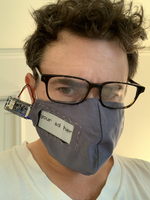Welcome
Josh a Professor of Astronomy and Miller Professor at the University of California, Berkeley teaching radiative processes, high-energy astrophysics, astronomy data lab, and a graduate-level “Python for Data Science” course. He has published over 300 refereed articles largely on time-domain transients events, artificial intelligence, and telescope/insight automation. His book on gamma-ray bursts, a technical introduction for physical scientists, was published by Princeton University Press. He is the former chair of the Astronomy Department. Josh has been awarded the Data-Driven Discovery prize from the Gordon and Betty Moore Foundation and the Pierce Prize from the American Astronomical Society; he is also a former Sloan Fellow, Junior Fellow at the Harvard Society, and Hertz Foundation Fellow. He was co-founder and CTO of Wise.io, an AI application startup, acquired by GE in 2016.
Much of Josh's current group activities can be found at ML4Science.
Josh is the founder and principal curator of the CuratingAI art exhibition which ran in April 2024.
Note on Speaking Invitations: In the interest of fostering diverse representation, before inviting me to speak at a conference or the like, I ask that organizers pay particular attention to attracting women and those from underrepresented groups to be on the panel(s)/speaker list. I've served on too many academic and industry panels where the representation of such groups was nil or close to zero. If logistics work out, I'd be happy to participate so long as there are some assurances that it will be a diverse group on stage.
AI-generated podcast about a recent paper An Earth-mass planet and a brown dwarf in orbit around a white dwarf:
Interests
- Machine learning meets Physics
- Time domain (Black hole transients, Gamma-ray bursts)
- Optical/infrared instrumentation
Education
PhD in Astrophysics, 2002
Caltech
MPhil in Astronomy, 1997
Cambridge University
AB in Astrophysics and Astronomy and Physics, 1996
Harvard College










